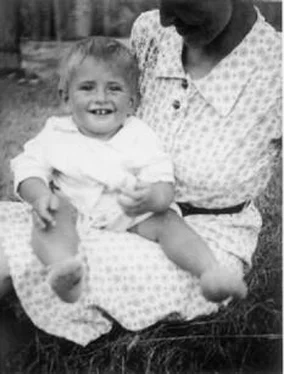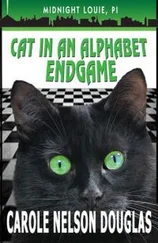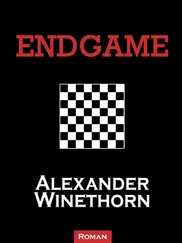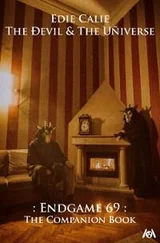That Regina was apt to put Bobby’s interests above her own and, out of love, signed on to Bobby’s dream of chess dominance is hinted in a letter she wrote back when her son had been vacillating between attending the Hastings Christmas Tournament and playing for the U.S. Championship. To Maurice Kasper, president of the American Chess Foundation, she wrote: “I hope Bobby will become a great chess champion some day because he loves chess more than anything else.”
During tournaments, either in the United States or abroad, she’d often send Bobby letters, cables, and telegrams of encouragement and advice, such as: “I see you are 1½ so far after two rounds, which is terrific. Keep it up but don’t wear yourself down at it. Swim, nap.”
Eventually, through Regina’s persistence, Bobby received an invitation to be a possible contestant on the most popular show on television, The $64,000 Question . The idea was that he’d be answering questions about chess. Several other players were also invited to audition for the proposed show, which would present questions that would focus on the history and lore of the game. Fourteen-year-old Bobby showed up at CBS’s Television Studio 52, garbed in his characteristic corduroy pants and flannel shirt buttoned at the collar and displaying an attitude that was one part assurance and one part skepticism.
The way the show worked was that contestants would choose a category, such as movies, opera, baseball, etc., and answer questions that would become exponentially more difficult and ultimately more valuable. The first correct answer was worth $2, then $4, then $8, doubling week after week until the sum of $64,000 was reached, if ever. If a contestant reached the $8,000 plateau and failed to answer that question correctly, he or she was given a new Cadillac as a consolation prize, worth about $5,000 at that time.
The $64,000 Question was so popular that even President Eisenhower watched it every week, telling his staff not to disturb him during its time slot. On the Tuesday nights when the show was broadcast, crime rates fell, and attendance at movie theaters and restaurants dropped. It seemed as if all of America was watching the show, and successful contestants were becoming celebrities in their own right. If chess were chosen as a category for the show, the result could greatly promote the game to the public. The chess fraternity, at least in New York, was all aquiver over the possibility.
Regina Fischer was also atypically giddy about Bobby’s prospects, and Bobby, for his part, was excited about using his immense knowledge of the game and the possibility of going all the way, emerging with $64,000 (equivalent to about a half million dollars in today’s wealth), thereby solving the family’s financial woes.
In the audition, everything went well at first. Bobby correctly answered question after question, until he was asked in what tournaments Yates defeated Alekhine. Bobby thought for a long while, then told his interrogator that it was a trick question, because Yates had never defeated Alekhine.
Surprised because Bobby’s answers had been unerringly correct up to that point, the quiz show representative told the boy that Yates had beaten Alekhine in two tournaments: in Hastings in 1922, and in Carlsbad the following year. Bobby was furious, unwilling to admit that he was mistaken.
Yates did defeat Alekhine in those tournaments. Nonetheless, it was not as a result of Bobby’s peevishness or slip of the mind that the producers decided against initiating a chess-devoted category segment. The idea died because of the arcane nature of the game. Ultimately, the producers concluded that there just weren’t enough people interested in chess to maintain a large enough viewing audience.
Bobby took some of the blame himself. His dreams of wealth quickly slipped away, and he wrote, humbly: “I guess none of us were smart enough to pass inspection. It made interesting conversation while it lasted, anyway.”

Returning home one afternoon from her hospital shift, Regina was approached in front of her apartment house at 560 Lincoln Place by two sun-glassed men, conservatively dressed. “Mrs. Fischer? Regina Fischer?”
“Yes?” she said.
The men flashed their credentials: They were FBI agents.
“What’s this about?”
“May we go inside? We don’t like to talk on the street.”
“Before I do anything,” said Regina, “tell me what you want.”
“We just want to ask you some questions.”
Regina demurred: “I don’t want to answer anything unless I have my lawyer present.”
“What are you afraid of? Do you have something to hide?”
“I’m not afraid of anything,” Regina answered, “and I have nothing to hide. I just don’t want to talk to you unless I have my lawyer with me.”
With that, she walked proudly away, entered the vestibule of her building, and trudged upstairs. She was shaking, not because she was concealing anything, but because of the scenario that had just taken place: two law enforcement agents, men who towered over her relatively tiny frame of five feet, four inches, coming at her in a confrontational way in the street.
Regina’s political activities—any or all of which could be considered “subversive,” taking into account the near hysterical anti-Communist climate of the day—were fodder for the FBI: her six years in Moscow, her mercurial ex-husband in Chile, her work at defense plants, her association with rabble-rousers, her affiliation with left-wing political organizations, and her active participation in protests—such as a vigil she joined on the night of the execution of the convicted spies Ethel and Julius Rosenberg. Had she done anything illegal? Were any of her friends spies? She questioned herself, and then called her lawyer, before telling Joanie and Bobby what had happened.
To her relief, there were no further overt visits from the FBI. What Regina didn’t know, however, was that since 1942 the Justice Department had suspected her of being a Soviet espionage agent. Consequently, there was a sweeping investigation taking place of her activities, past and present, spearheaded by FBI director J. Edgar Hoover.
The confidential FBI report on Regina dramatically points up the degree to which McCarthy-inspired paranoia gripped America at that time:
SECRET
It is to be noted that subject is a well-educated, widely traveled intelligent woman who has for years been associated with communists and persons with procommunist leanings. She would appear to be a person who would be ideologically motivated to be of assistance to the Russians. In view of the foregoing and in light of her recent contact of an official of the Soviet Embassy, it is desired that this case be re-opened and that investigation be instituted in an effort to determine if subject has in the past or may presently be engaged in activities inimical to the interest of the United States. Investigation of Fischer is not to be limited to developing additional data concerning her recent contact of XXXXXX. It is desired that the investigation of subject be most searching and pointed towards ascertaining the nature of her present activity and the identity of her associate.
The telephone in the Fischer home was tapped. Undercover agents rifled through Joan Fischer’s records at Brooklyn College. Regina was shadowed. Her fellow nurses and neighbors were questioned. Her high school and college records were examined, and her former teachers and administrators were questioned. Even the second wife of Jacob Wender, Bobby’s grandfather, was investigated. The investigation would continue for almost a half century and produce some 750 pages of reports, costing the American taxpayers hundreds of thousands—if not millions—of dollars, all ending with a whimper, nary a bang, since nothing definitive was ever found about any espionage activity on Regina’s part. “My mother,” said Joan Fischer, “is a professional protester.” Other than that, the FBI eventually considered Regina Fischer harmless to the security of the United States.
Читать дальше



![Антон Текшин - EndGame [СИ]](/books/394477/anton-tekshin-endgame-si-thumb.webp)









